Dr Cleve Hicks: In His Own Words
Chimpanzee Primatologist, Author, Conservationist
Bio: Dr Cleve Hicks
Primatologist Dr Thurston Cleveland (Cleve) Hicks of The Faculty of Artes Liberales, The University of Warsaw has dedicated his life and career to studying the unique behaviour of the ground-nesting, termite mound-smashing Bili-Uéré sub-species of chimpanzees of the Congo.
He has made many fascinating and ground-breaking discoveries in chimpanzee behaviour and culture.
Dr Hicks speaks with Palm Oil Detectives about his chimpanzee research, the state of the world right now, veganism, deforestation, palm oil and what consumers can do to help the endangered animals of Africa.
Palm Oil Detectives interviews Primatologist Dr Cleve Hicks @Cleve_Hicks about why we must urgently respect the #cultures in non-human #apes, being #vegan #palmoil and why he believes in the #Boycott4Wildlife
Tweet
Palm Oil Detectives interviews Primatologist Dr Cleve Hicks @Cleve_Hicks about why we must urgently respect the #cultures in non-human #apes, being #vegan #palmoil and why he believes in the #Boycott4Wildlife
Tweet
“West African chimpanzee populations reduced 80-90% in a few decades, due to #cocoa and #palmoil plantations, mines, civil war and poaching. Vanishing with them are their unique cultures.” Primatologist @Cleve_Hicks #Boycottpalmoil #Boycott4Wildlife
Tweet
“Palm oil has already devastated South East Asia. I can see it gobbling up tropical forest where I live in Colombia. I salute the efforts of @Palmoildetect and support the #Boycottpalmoil #Boycott4Wildlife” @Cleve_Hicks
Tweet
“#Consumers can and should #boycott brands causing #palmoil #meat #soy #deforestation. I support the #Boycott4Wildlife, going vegan is another way an individual can make a difference to #rainforests #animals” #Primatologist @Cleve_Hicks
Tweet
“#Greenwashing is rife in the products we buy. Labelling products is a start. Although there is loads of #corruption around the world on how these labels including palm oil are certified. #Boycottpalmoil #Boycott4Wildlife” Primatologist @Cleve_Hicks
Tweet
“The homecoming of #palmoil to #Africa under global capitalism is likely to reduce the glorious Central African forests to ashes, replaced by lifeless plantations, just for slightly cheaper junk food! #Boycottpalmoil” Primatologist @Cleve_Hicks
Tweet
Monitoring the Bili-Uéré Chimpanzees
Deep in the lush wilderness of the Bili-Uéré region of the Democratic Republic of the Congo is a large population of Bili-Uéré chimpanzees – Pan troglodytes subspecies schweinfurthii.
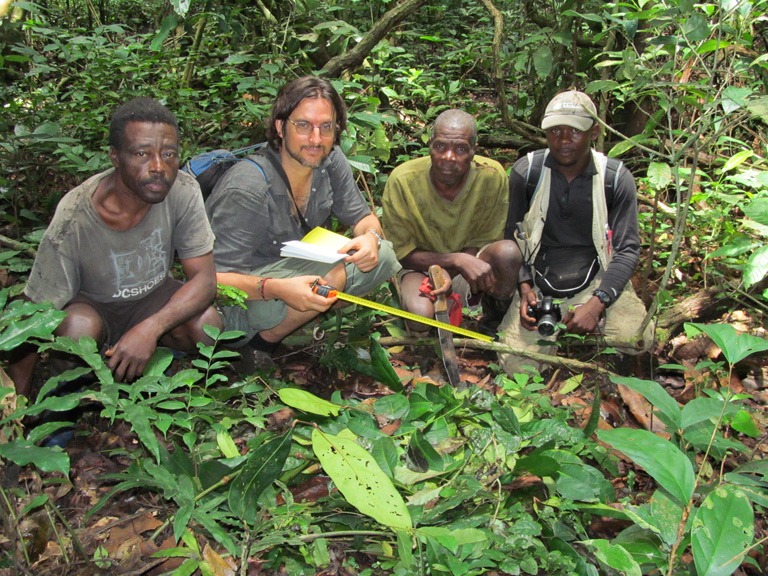
“My team and I spent over 12 years living in the jungle to get up close to them, our nearest cousins on the evolutionary tree”
“A century ago, humans believed that tool use was what set us apart from other species. In recent decades, supposedly exclusive human behaviours have been falling to the wayside“
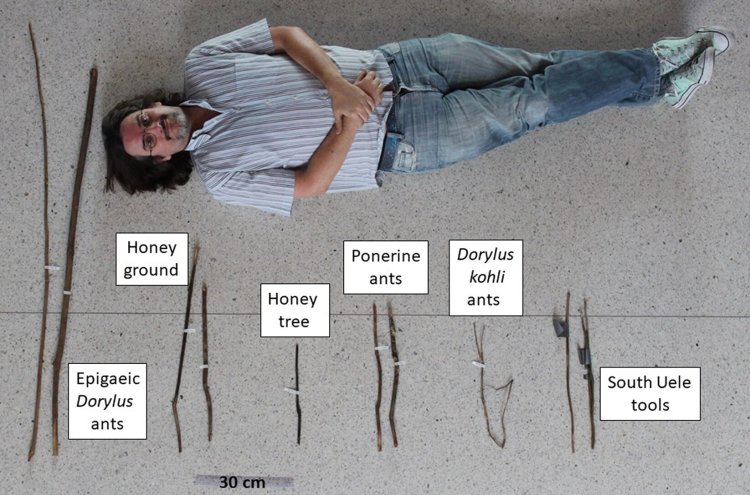
Jane Goodall’s discovery of stick tool use by the Gombe chimpanzees in the 1960’s changed this. Now we know that orangutans and many monkeys use tools as well, and that’s only and that’s only looking at primates.
Animals have complex societies, self-awareness, they engage in conduct cooperative hunting, warfare, and even have what looks like active teaching, in orcas
Dr Cleve Hicks
Culture is still revered by some as being a uniquely human characteristic. Our species has, indeed, ‘gone nuclear’, so to speak, with cumulative culture. Look around you.
Nevertheless, if we define culture as socially-transmitted behaviour that varies between populations, we can see at least the seeds of culture in other species, including chimpanzees.
My research shows that Bili-Uéré chimpanzees ignore the abundant Macrotermes termite mounds that are fished for with tools by chimpanzees living in many other areas, including Gombe. Instead, they prey on two other kinds of termites of the genera Cubitermes and Thoractotermes, that are common across chimpanzee range in Africa, but ignored by almost all other populations.
Instead of using tools to get them, the Bili-Uéré chimpanzees pound open their mounds against roots and rocks.
Unlike other chimpanzees but similar to gorillas, Bili-Uéré chimpanzees often make nests to sleep on the ground.

Unusual tool-using chimp culture discovered in the Congo – Mongabay Newscast
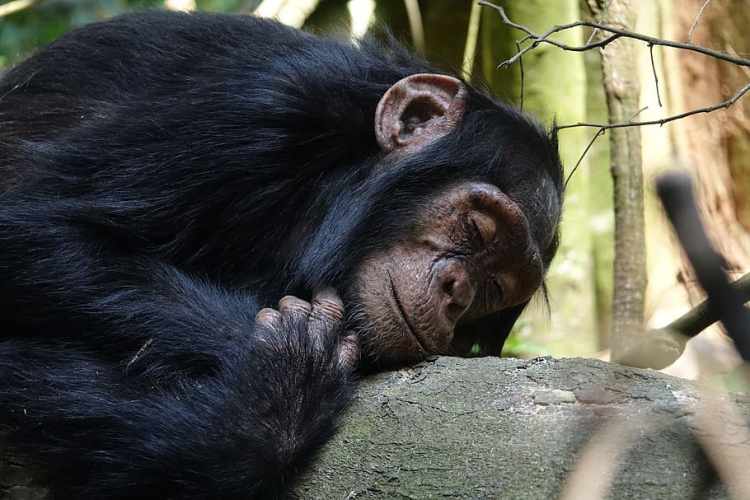
“Ground nesting is also relevant to our own evolution, because at some unknown time, our ancestors switched from sleeping in the trees to sleeping on the ground.”
Photo: PX Fuel
The Congo Basin ecosystem began collapsing a long time ago
“West African chimpanzee populations crashed by 80 to 90% over the past few decades, due to the proliferation of cocoa and palm oil plantations, mines, civil war and poaching. Vanishing with them are their unique cultures.“
Dr Cleve Hicks
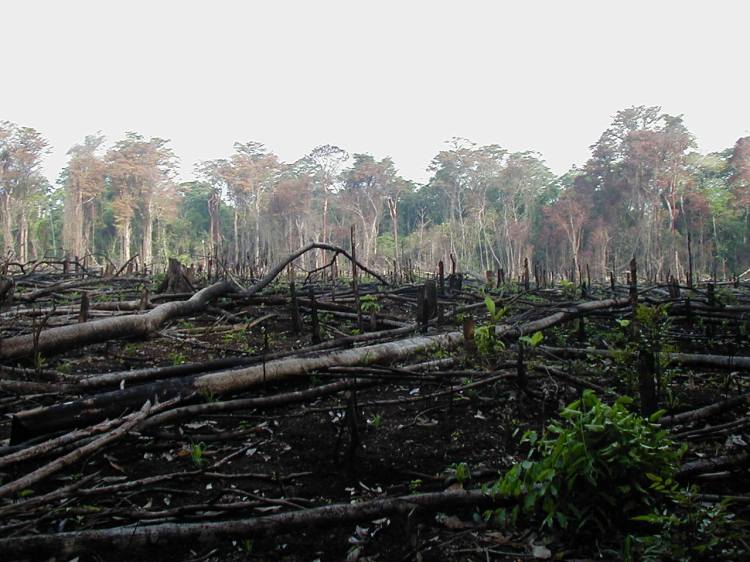
Photo: Deforestation in the Democratic Republic of Congo, Wikipedia.
This process has accelerated rapidly over the past few decades. Although there are still 10s of 1000s of Eastern chimpanzees in Northern DRC, mining activities are spreading throughout the region, and these can cause great damage to wildlife: Eastern lowland gorillas, for instance, were decimated over the past few decades. Conflict related to mining can also lead to massacres and enslavement of local people.
“I am afraid the same thing will happen to chimpanzees quite soon, if the global community does not somehow tame its voracious appetite”
~ Dr Cleve Hicks
Photo: An open-cut cobalt mine in the Democratic Republic of Congo. The resources plundered here go into the lithium-ion batteries found in our tech devices.
I think we’re all beginning to realize how our recent cultural divorce from the rest of the natural world is having a terrible effect on ourselves and on all other life.
Dr Cleve Hicks
Palm oil has already devastated South East Asia. I can see it gobbling up tropical forest where I currently live in Colombia as well
Oil palm has been used for millennia by indigenous peoples of Africa in an ecologically rather sound way.
The imminent homecoming of palm oil to Africa under the framework of global capitalism is likely to reduce the glorious Central African forests to ashes.
These forests are poised to be replaced by endless, lifeless plantations, just so we can all pay a slightly cheaper price for junk food.
Brands Using Deforestation Palm Oil in their Products
These brands have products that contain palm oil sourced from…
Research: Palm Oil Deforestation and its connection to RSPO members/supermarket brands
The RSPO is a global certification scheme for palm oil…
I salute the efforts of Palm Oil Detectives
I think the #Boycott4Wildlife is a good initiative
Photo: PX Fuel
Palm Oil Detectives helps to shine light on these abuses and bring some degree of accountability to this immensely destructive oil palm behemoth
It is also critical to reach those millions of well-meaning people who may be unaware of the effects that their daily supermarket purchases are having on the natural world. The problems seem so huge. There seems to be so little that an individual can do.
But consumers can and should choose to boycott companies who are behaving irresponsibly and unethically. Going vegan, as I did years ago, is one way an individual can make a big difference.
Dr Cleve Hicks
“Consumers can and should #boycott brands causing #palmoil #meat #soy #deforestation. I support the #Boycott4Wildlife, going vegan is another way an individual can make a difference to #rainforests #animals” #Primatologist @Cleve_Hicks
Tweet
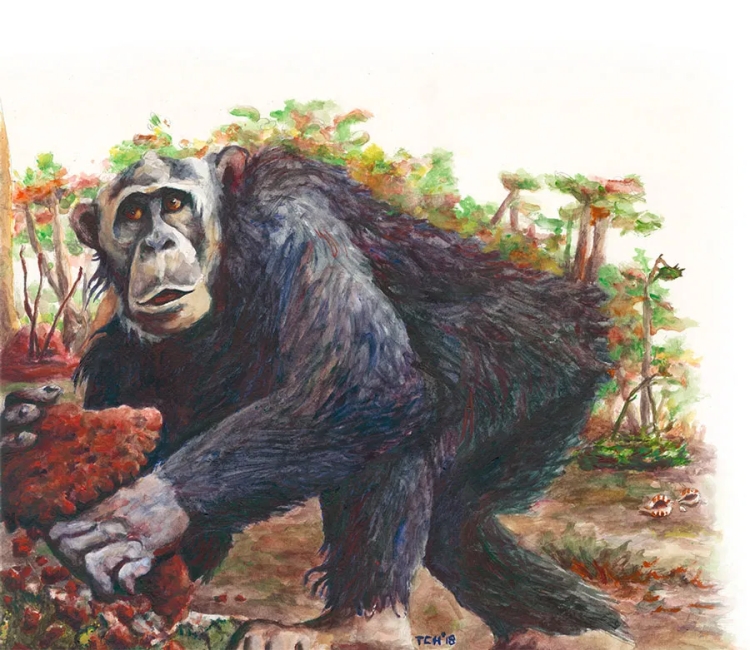
Greenwashing is rife with the foods we eat and the products we buy
Labelling products as forest-friendly is a start. Although there is loads of corruption around the world about to how these labels, including palm oil, are certified.
I make every effort in my personal life to not buy products containing palm oil.
Dr Cleve Hicks
Food manufacturers should offer us consumers a greater variety of tasty vegan products and also food that does not use palm oil or soy, that has been harvested from the ashes of old-growth tropical forests.
Consumers should seek out and demand more locally-grown foods in their supermarkets.
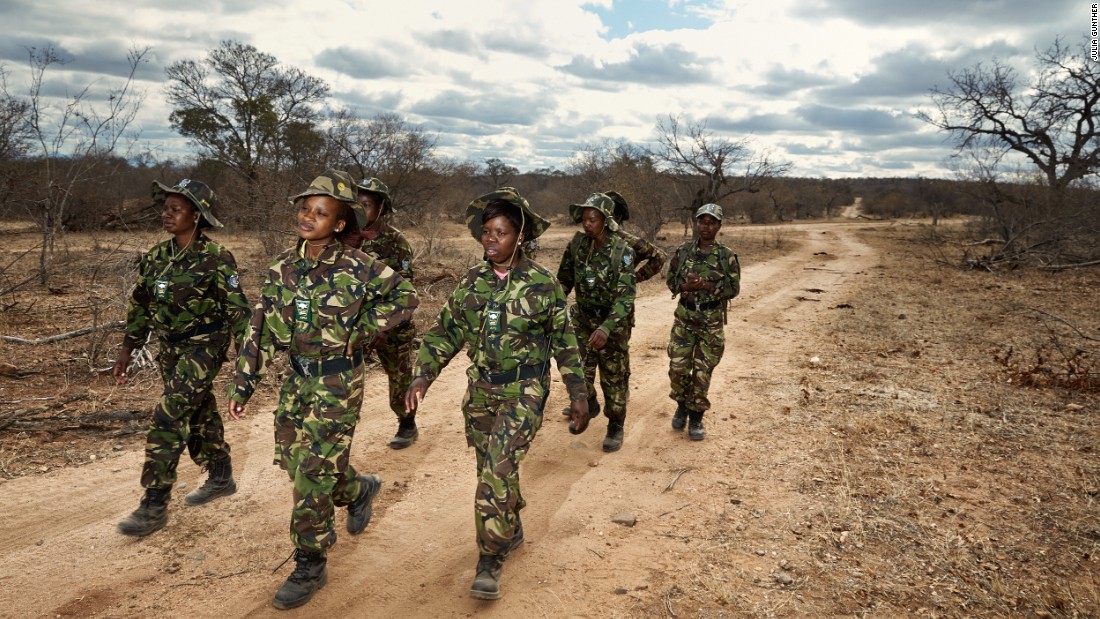
Consumers can also help donating to groups working on the frontline everyday like the Black Mambas, an all female anti-poaching team!
I wrote the children’s book ‘A Rhino to the Rescue’ because rhino populations have been decimated in the past century
Sometimes working in conservation can be extremely frustrating. Seeing many dead primate orphans in the Congo had a deep effect on me. So I decided to use watercolours and create my own world and hero, the endearingly bumbling Ernest Horningway. He is a gentrified rhino who goes to Africa to meet his wild cousins and help them. It’s difficult to convey the terrible problem of wildlife trafficking to children.
“My hope is that my whimsical tale will expose children to important information about what is happening in our world without traumatising them”
I also wanted to help out the brave conservationists in the field protecting Ernest’s cousins, which is why we donate some of the proceeds of the book to Black Mambas and Bush Babies. Big news: we have a French translation of the book coming out very soon!
When you purchase the book ‘A Rhino to the Rescue’, 10% of proceeds go towards the Black Mambas
Buy now on Amazon and find out more on these social channels
All of the non-human apes, especially orangutans and bonobos need our urgent protection right now!
Photo: Pixabay
Along with the Black Mambas and Bush Babies which I previously mentioned, animal activists can help by supporting these great organisations:
The African Wildlife Foundation
They have protected the wildlife of Bili for the past 10 years. They co-funded my 2012 surveys which revealed a stable chimpanzee population. This survey helped convince them to set up a project there.
The Lukuru Wildlife Research Foundation
These people work hard to protect the fauna of Democratic Republic of Congo and Bili.
The Lwiro Primate Rehabilitation Center
They provide a home for orphan chimpanzees and other primates, and employ local people to give them care.
The International Primate Protection League
These people heroically work around the clock to protect non-human primates around the world.
The Wild Chimpanzee Foundation
I recommend this organisation as well, they focus on saving the critically endangered West African chimpanzees.
Bonobo Alive
This organisation does incredible work to save bonobos.
Another very effective way to help endangered wildlife is to go vegan
I have been vegan for 20 years. I was inspired to do so while studying western lowland gorillas for 2 years in a forest called Mondika. After all, nobody asks a (mostly) vegan silverback gorilla, how he gets his protein!
Really, if one cares about the state of our global environment the easiest and most effective thing anyone can do is go vegan, or at least greatly reduce one’s consumption of meat and dairy products.
What is more important, another lousy hamburger or the survival of the Amazon and Congolese rainforests, and all the plants, nonhuman animals and people living in them? Not to mention what we are doing to our seas!
Dr Cleve Hicks
With our ‘new and improved’ global society, the human species is opening up a dangerous Pandora’s box!
We need to consider what we truly of value when we make our consumer decisions: human lives, intact ecosystems, music, poetry, love.
dr cleve hicks


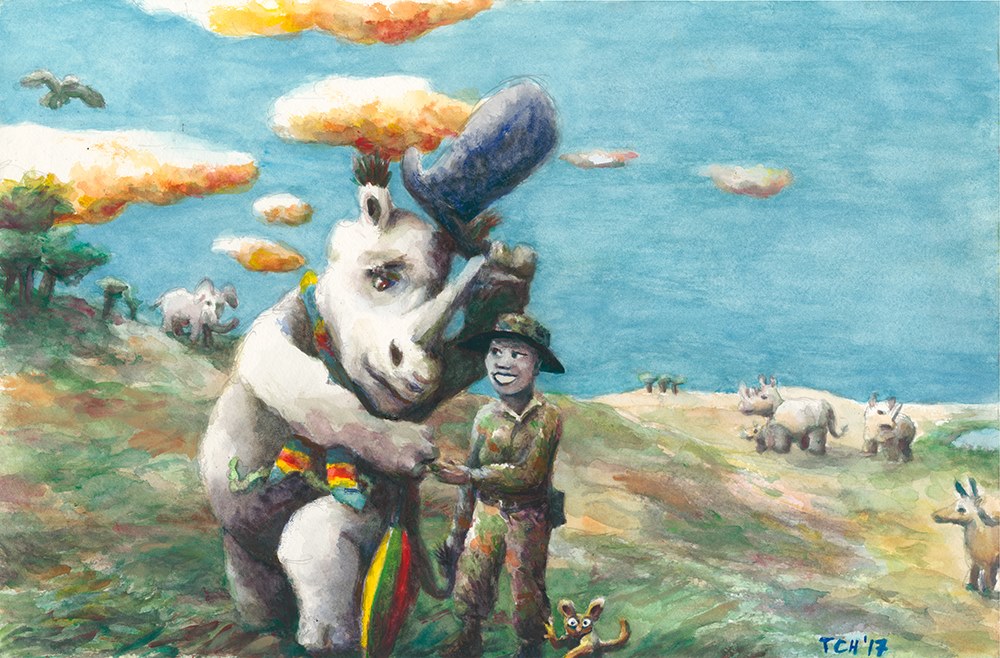
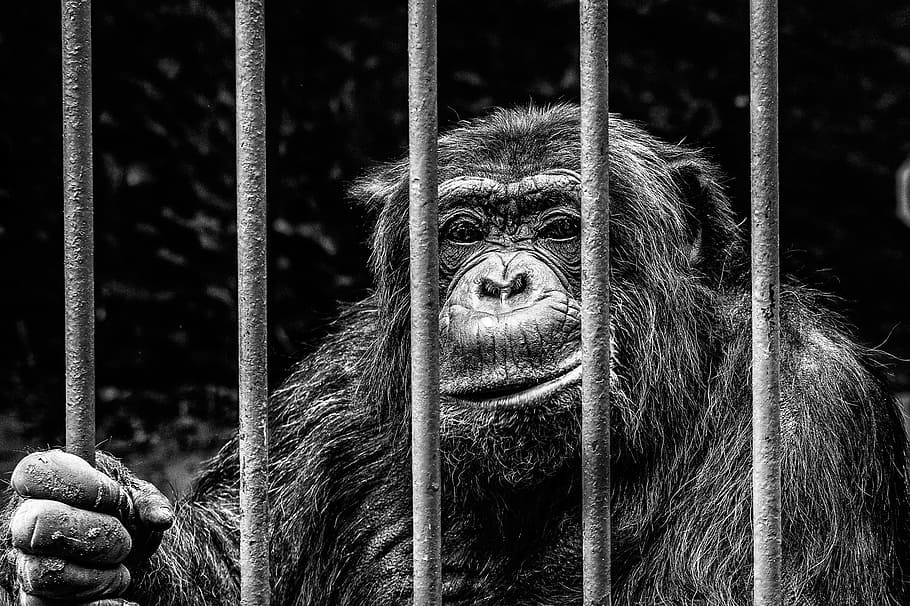
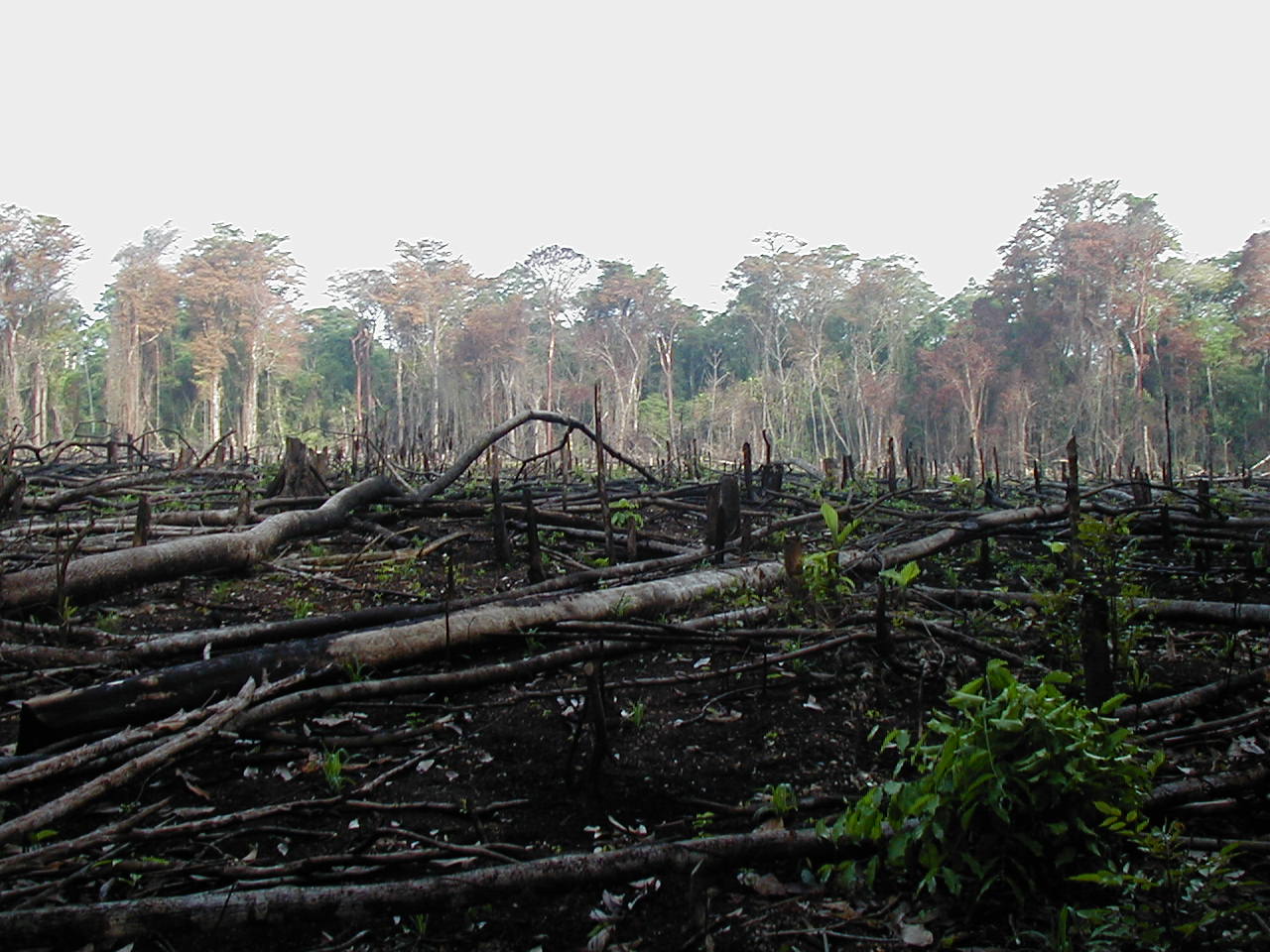
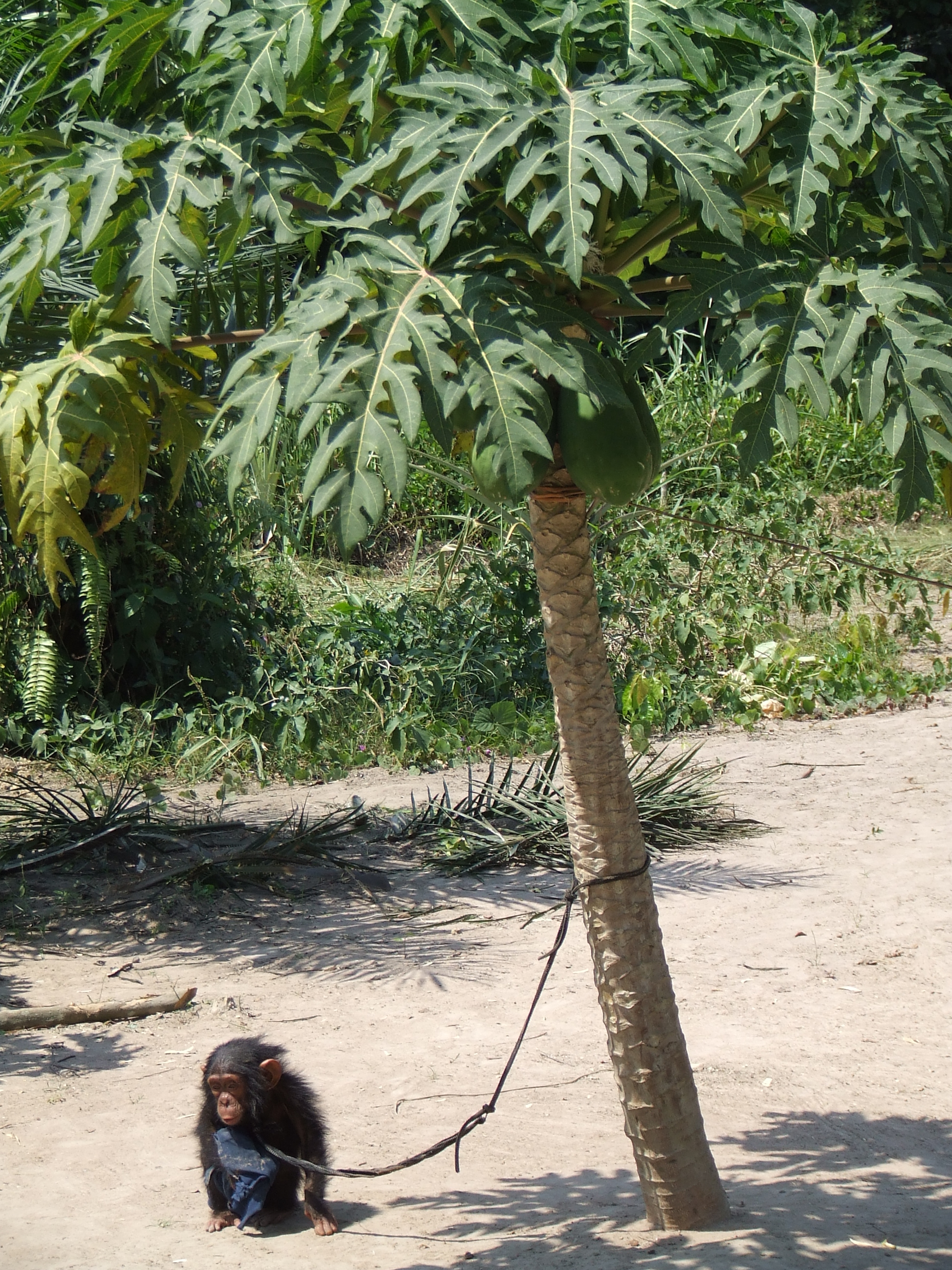
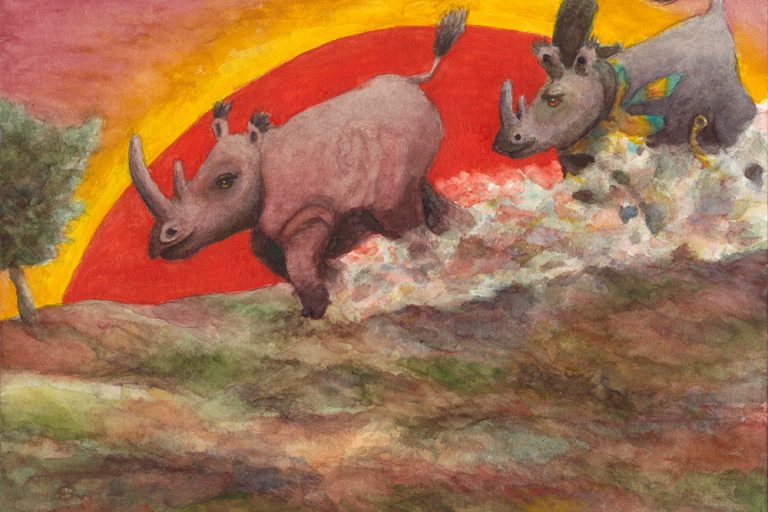
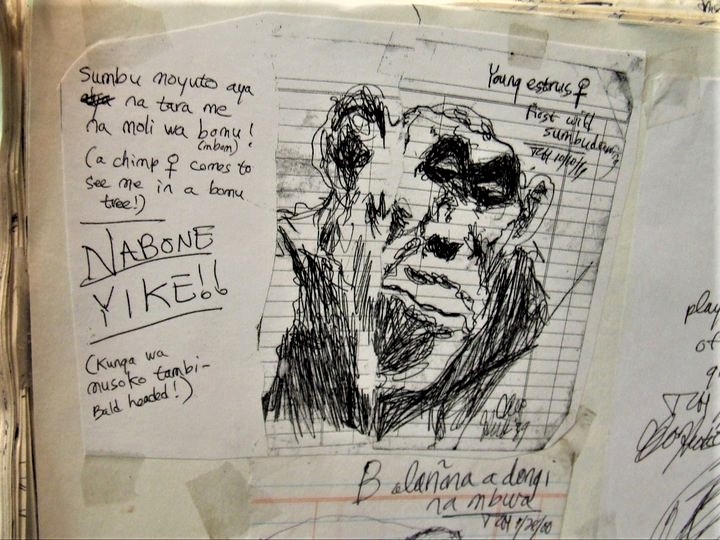
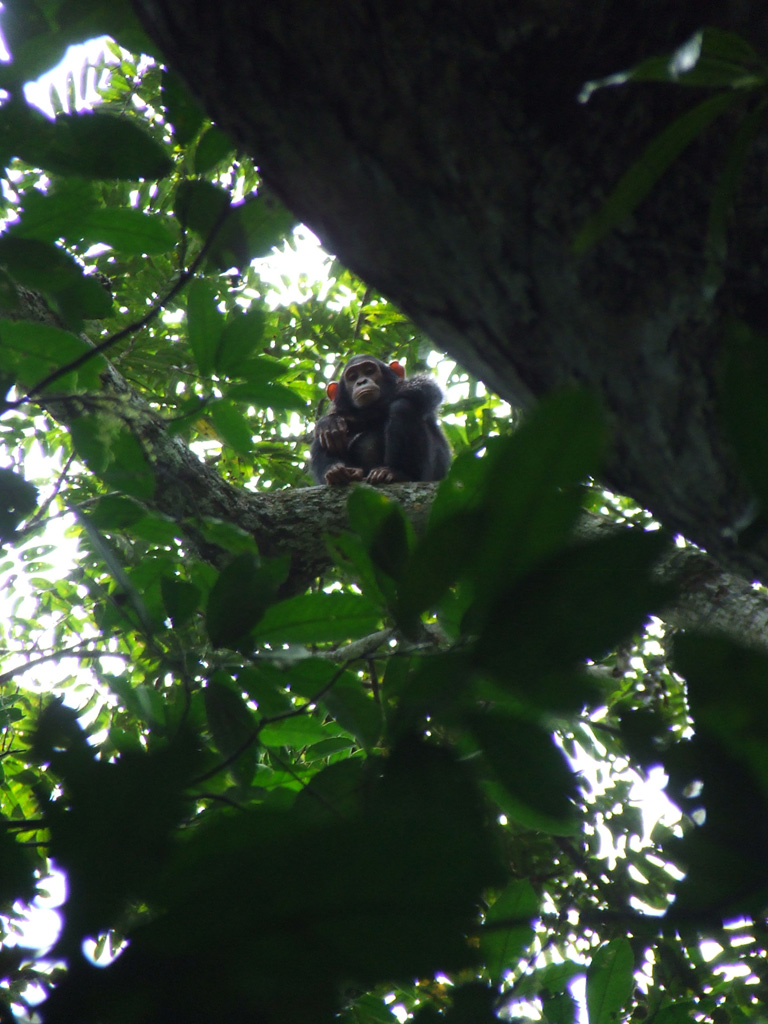
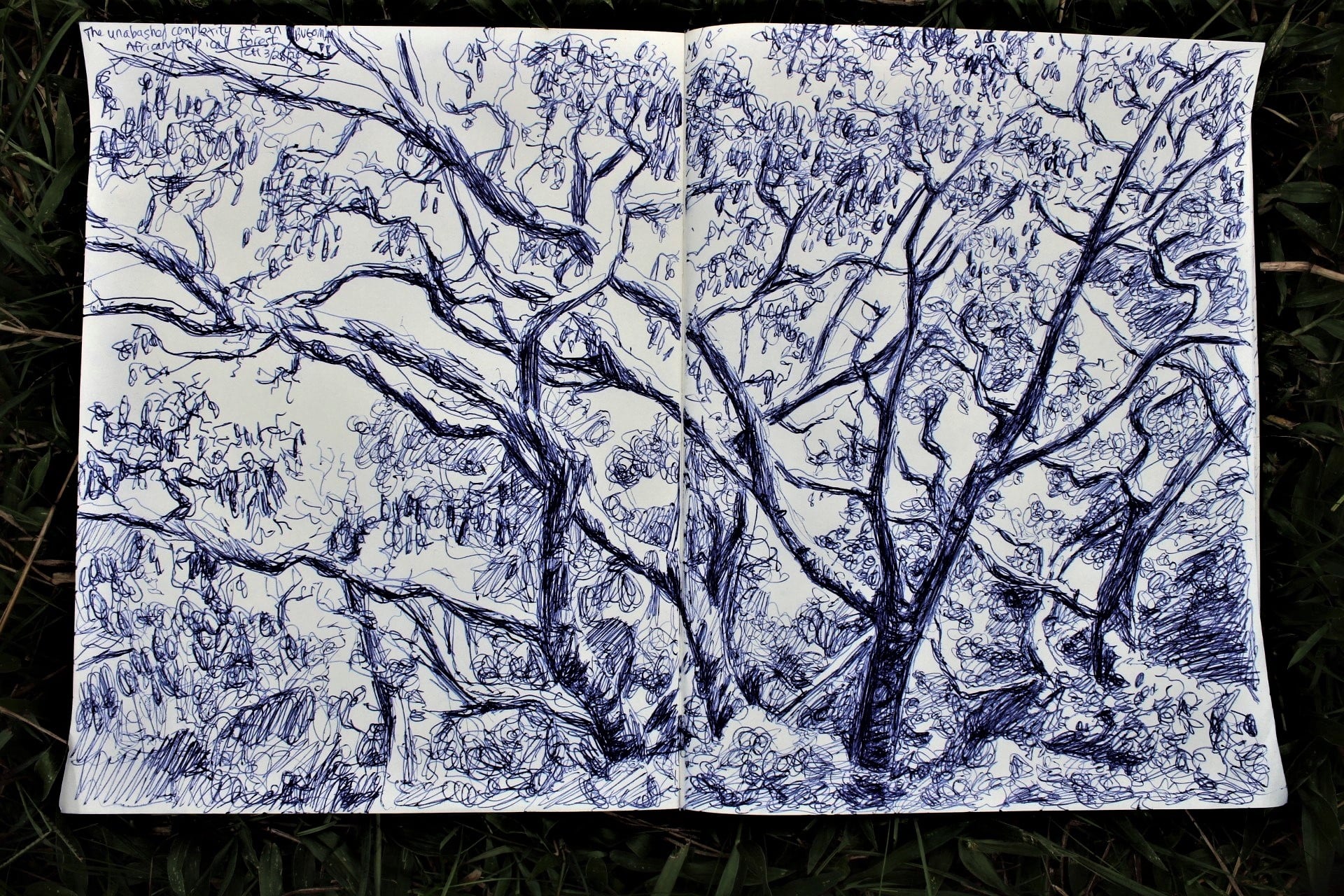
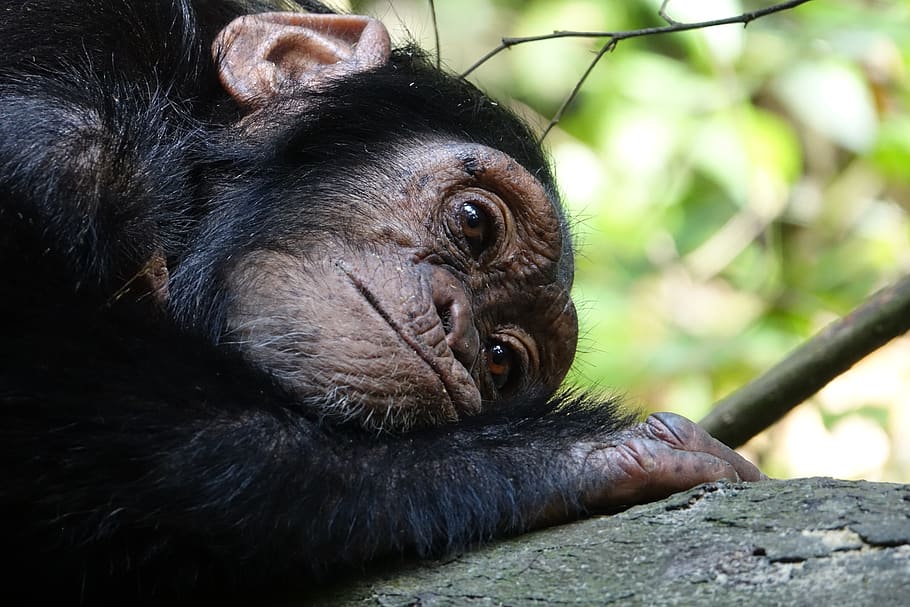
Photography: Wikipedia, Dr Cleve Hicks, PxFuel: Royalty Free Images.
Illustrations: Dr Cleve Hicks
Words: Dr Cleve Hicks
Recommended reading/watching
Chimpanzee Culture Wars: Rethinking Human Nature Alongside Japanese, European, and American Cultural Primatologists This book with deals with the debate about non-human culture, as well as the conservation crisis facing non-human apes.
Visions Of Caliban: On Chimpanzees and People by Dale Peterson & Jane Goodall
The Cultured Chimpanzee: Reflections on Cultural Primatology by William McGrew
Chimpanzee Material Culture: Implications for Human Evolution by William McGrew
The Zocay Project: My wife Sonia and I encounter South American monkeys in the jungles of Colombia.
Join the #Boycott4Wildlife on supermarket brands causing palm oil deforestation
Contribute in five ways
1. Join the #Boycott4Wildlife on social media and subscribe to stay in the loop: Share posts from this website to your own network on Twitter, Mastadon, Instagram, Facebook and Youtube using the hashtags #Boycottpalmoil #Boycott4Wildlife.
2. Contribute stories: Academics, conservationists, scientists, indigenous rights advocates and animal rights advocates working to expose the corruption of the palm oil industry or to save animals can contribute stories to the website.
3. Supermarket sleuthing: Next time you’re in the supermarket, take photos of products containing palm oil. Share these to social media along with the hashtags to call out the greenwashing and ecocide of the brands who use palm oil. You can also take photos of palm oil free products and congratulate brands when they go palm oil free.
4. Take to the streets: Get in touch with Palm Oil Detectives to find out more.
5. Donate: Make a one-off or monthly donation to Palm Oil Detectives as a way of saying thank you and to help pay for ongoing running costs of the website and social media campaigns. Donate here
Contribute in five ways
1. Join the #Boycott4Wildlife on social media and subscribe to stay in the loop: Share posts from this website to your own network on Twitter, Mastadon, Instagram, Facebook and Youtube using the hashtags #Boycottpalmoil #Boycott4Wildlife.
2. Contribute stories: Academics, conservationists, scientists, indigenous rights advocates and animal rights advocates working to expose the corruption of the palm oil industry or to save animals can contribute stories to the website.
3. Supermarket sleuthing: Next time you’re in the supermarket, take photos of products containing palm oil. Share these to social media along with the hashtags to call out the greenwashing and ecocide of the brands who use palm oil. You can also take photos of palm oil free products and congratulate brands when they go palm oil free.
4. Take to the streets: Get in touch with Palm Oil Detectives to find out more.
5. Donate: Make a one-off or monthly donation to Palm Oil Detectives as a way of saying thank you and to help pay for ongoing running costs of the website and social media campaigns. Donate here

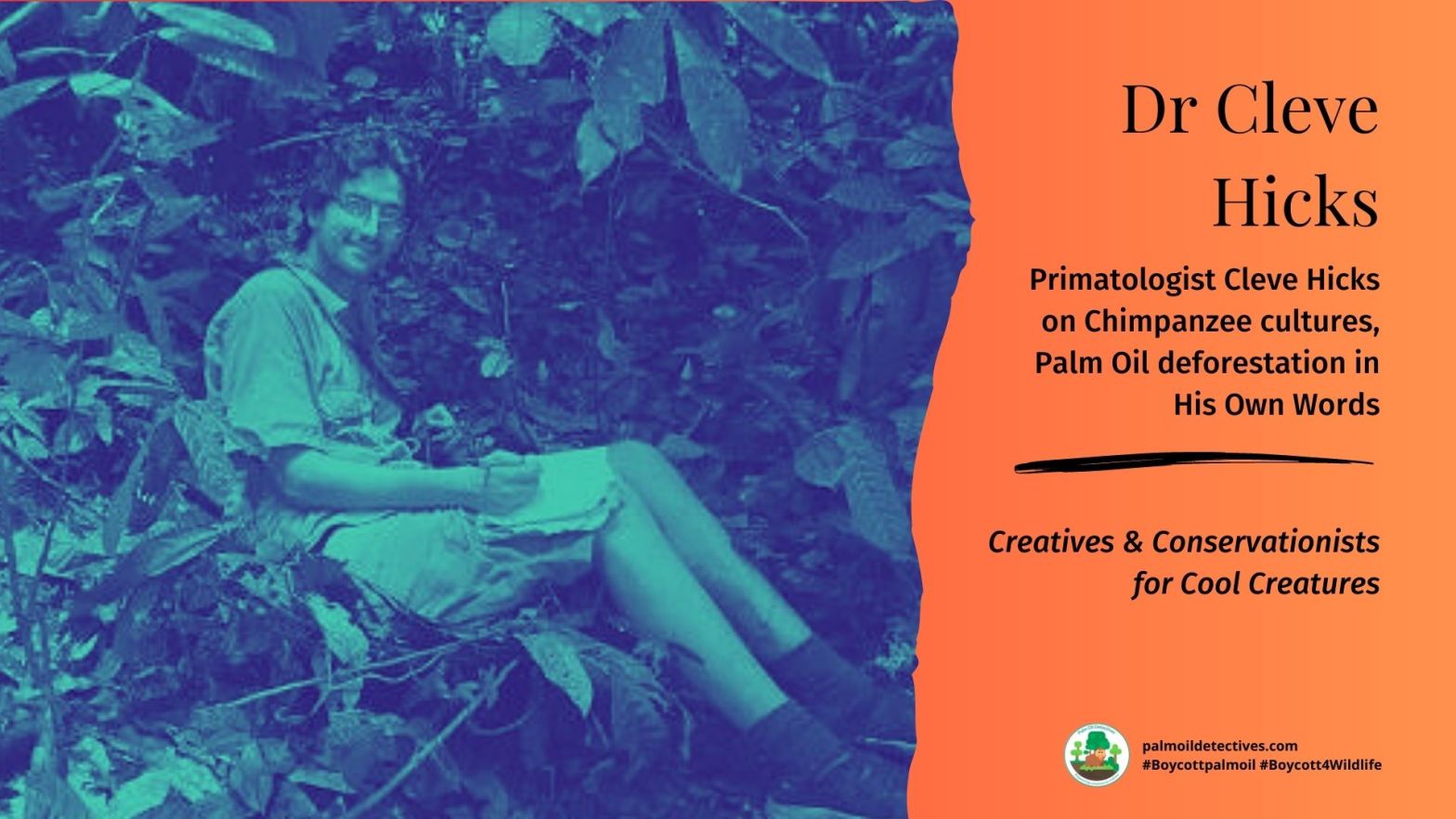
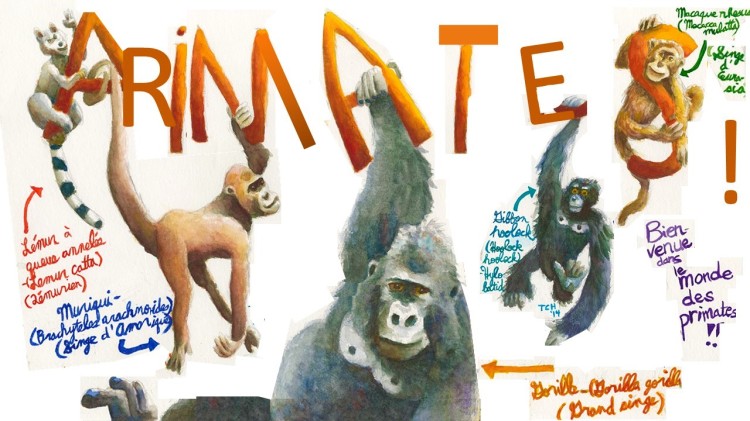

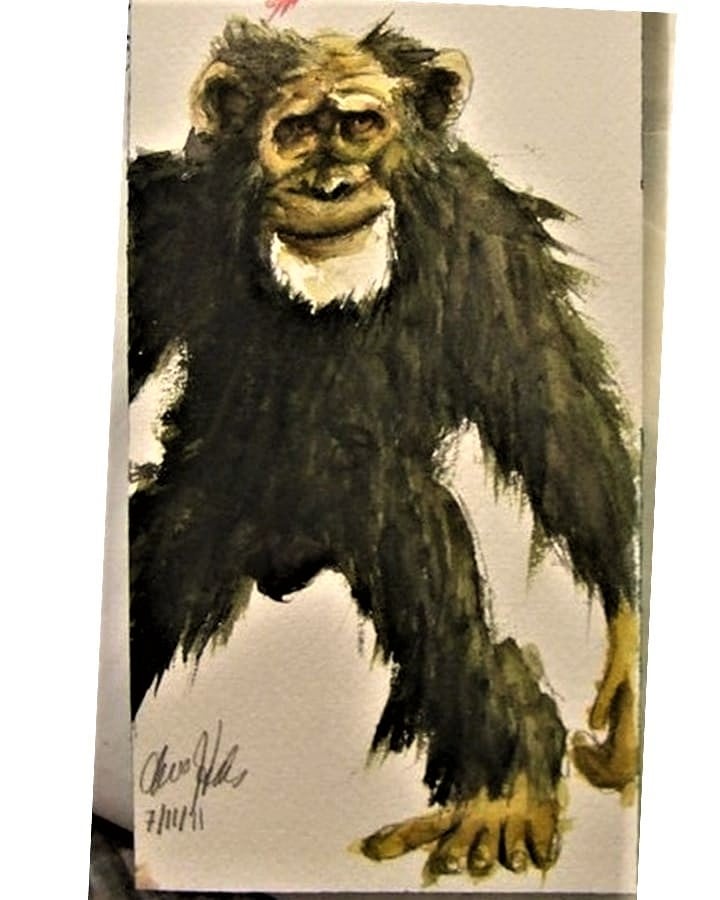
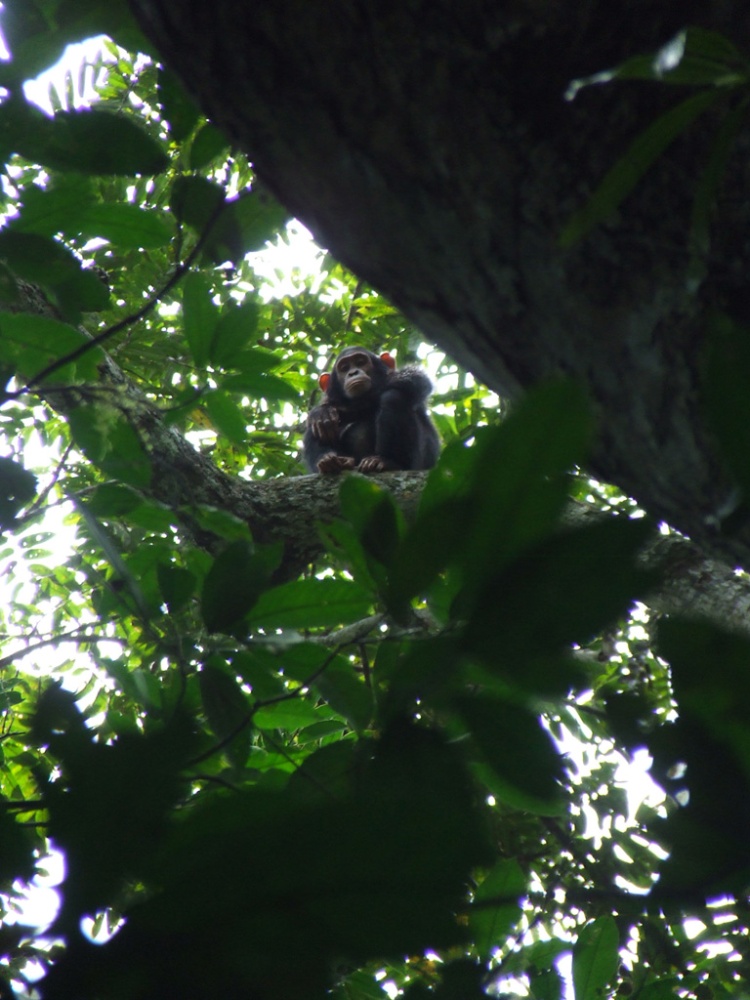
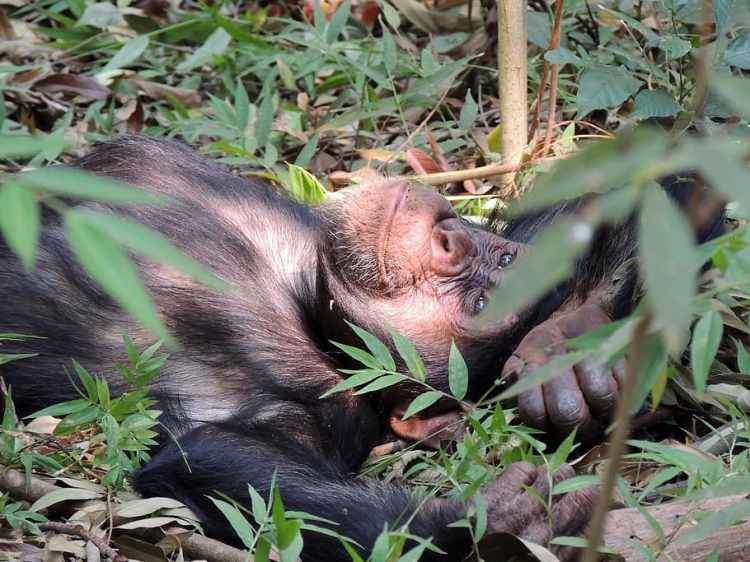
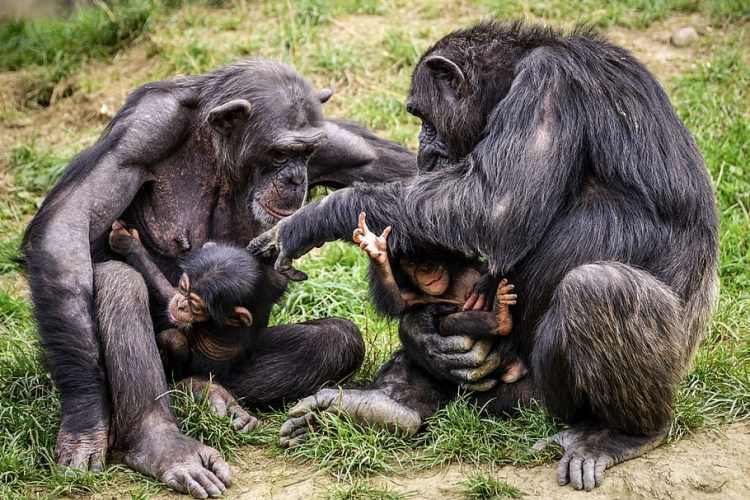
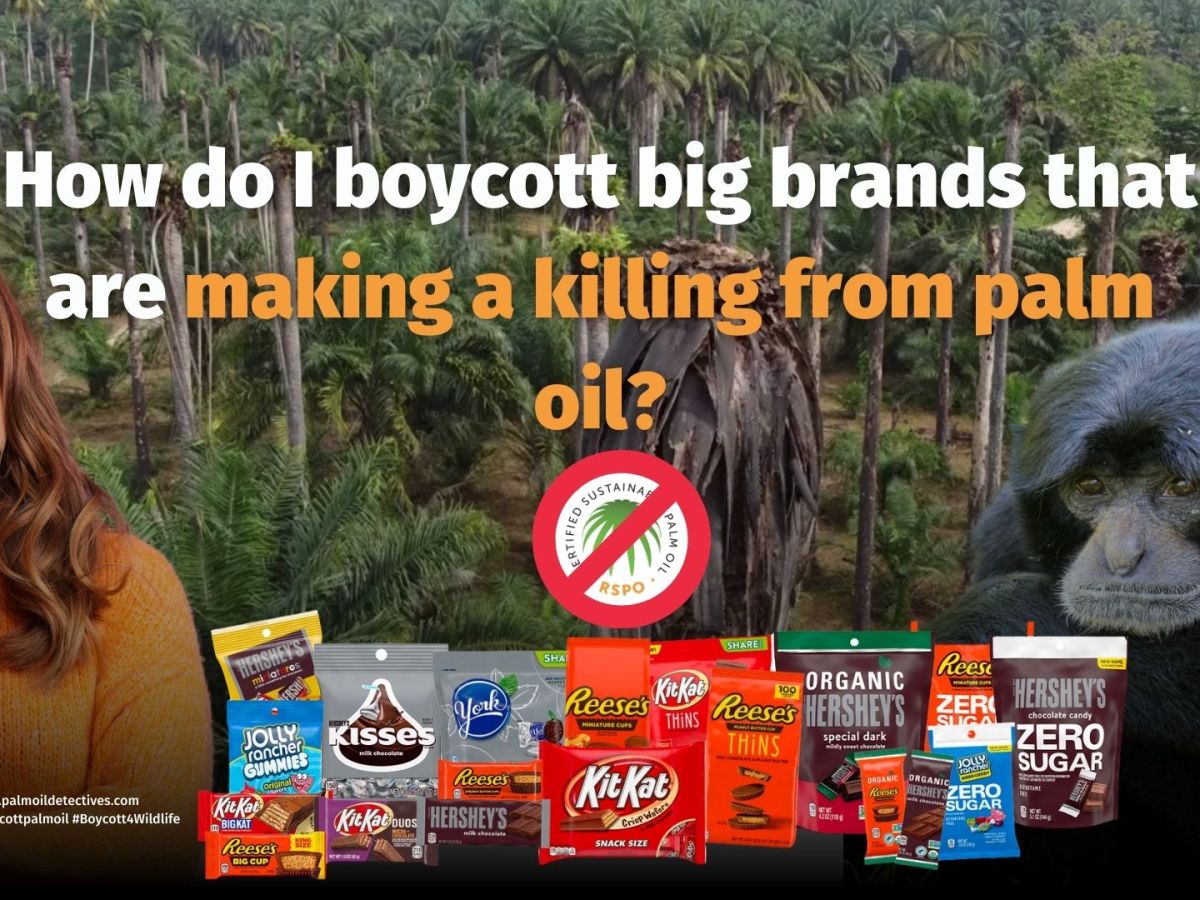
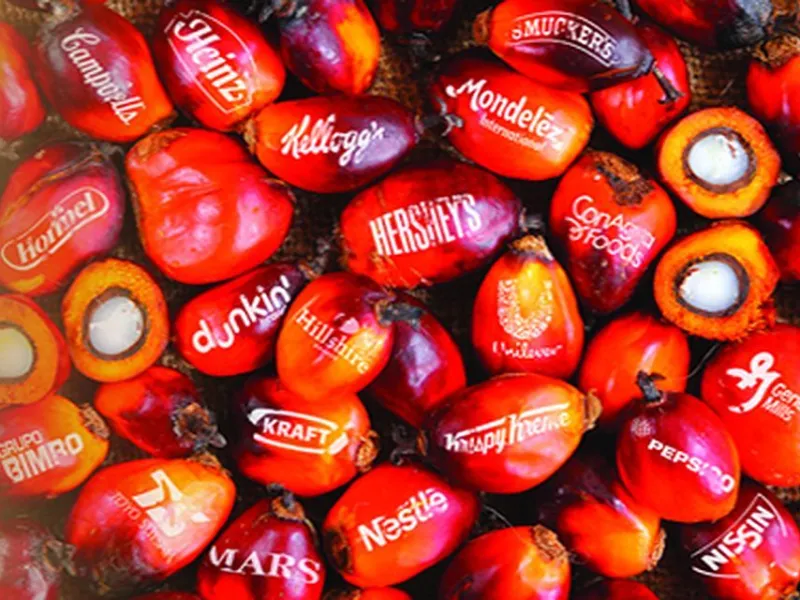






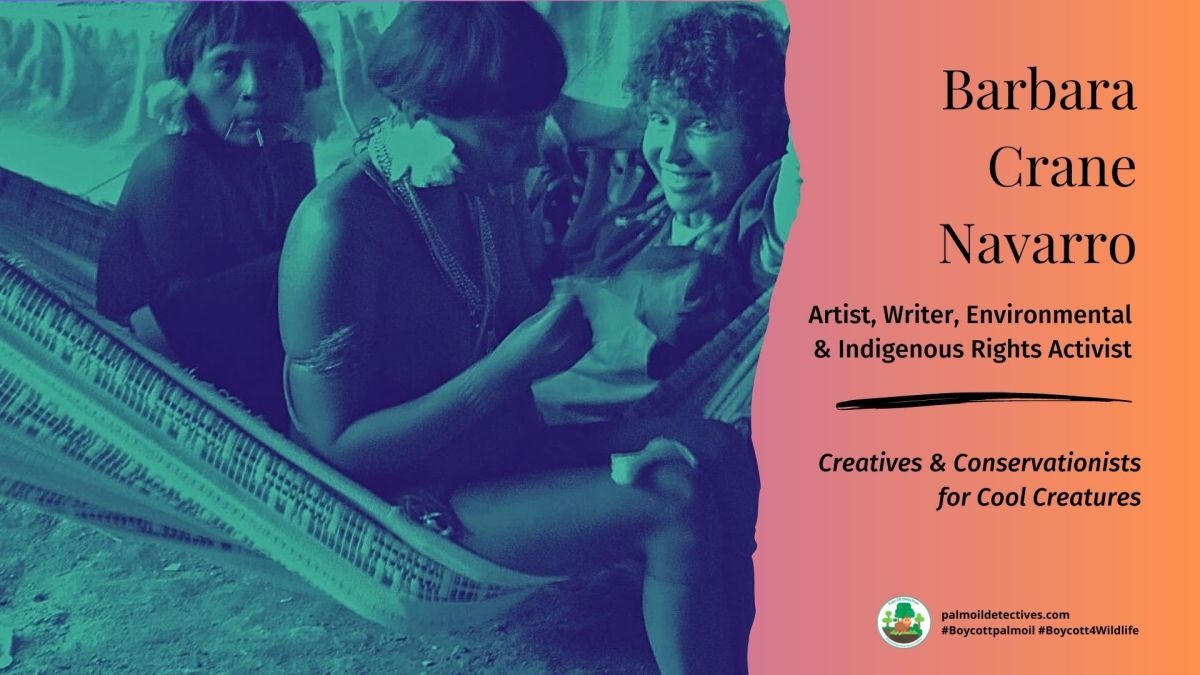
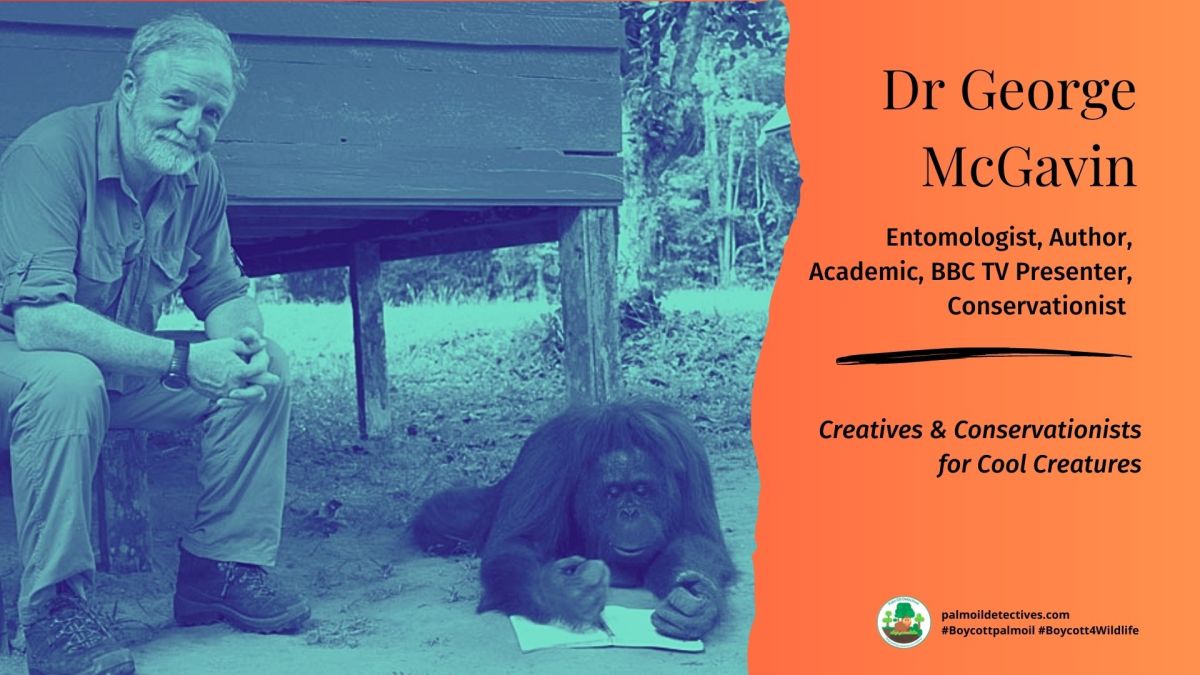
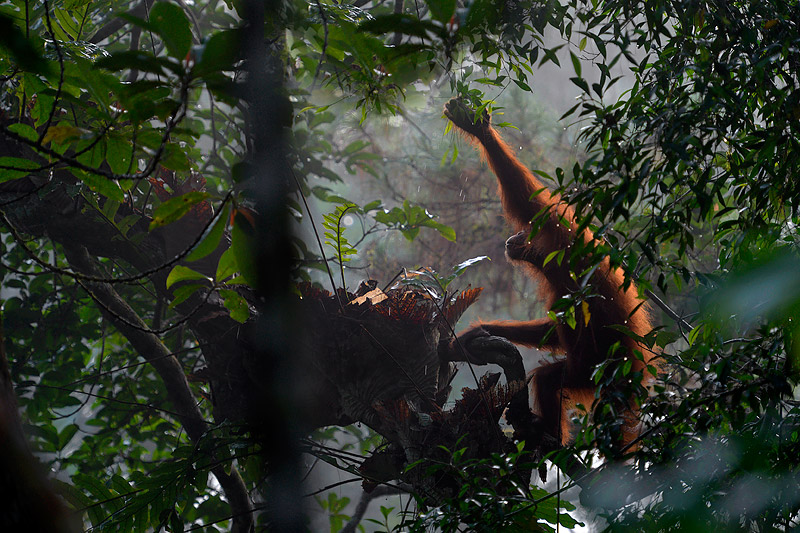
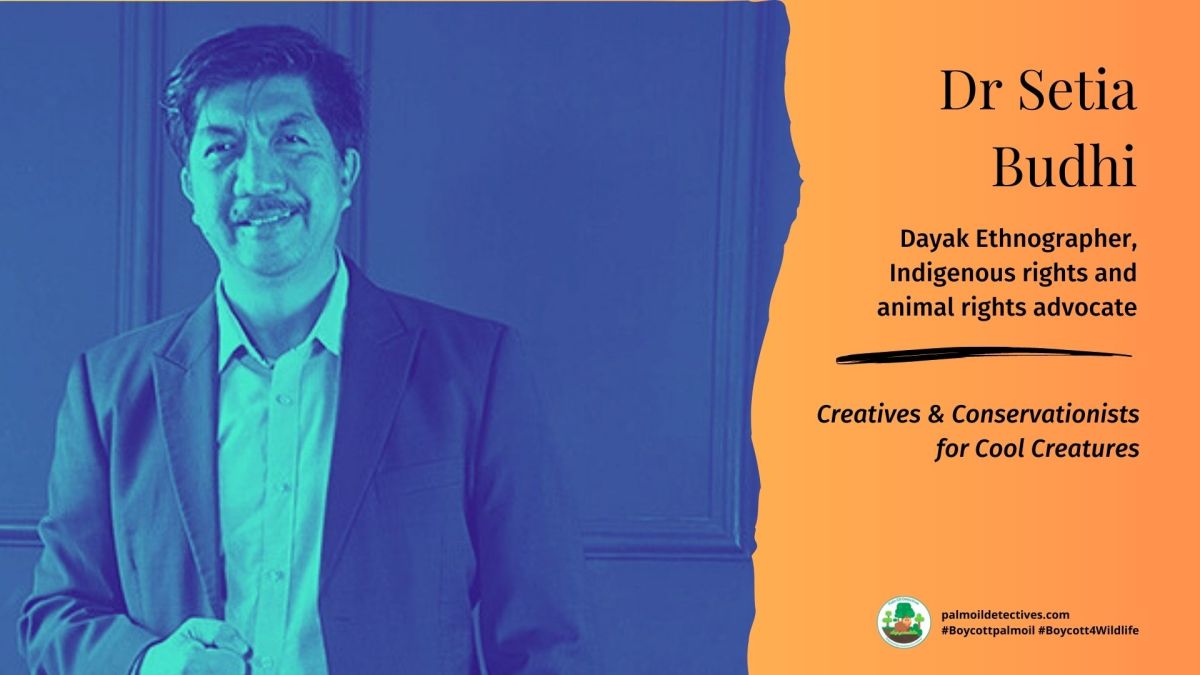
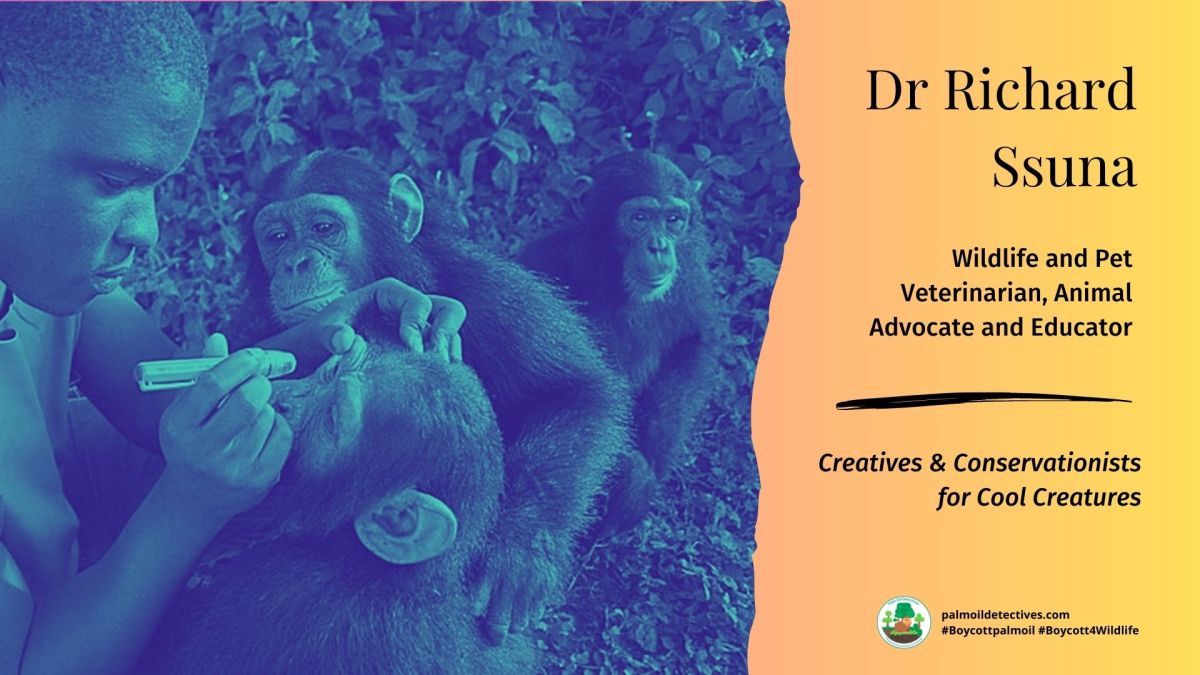
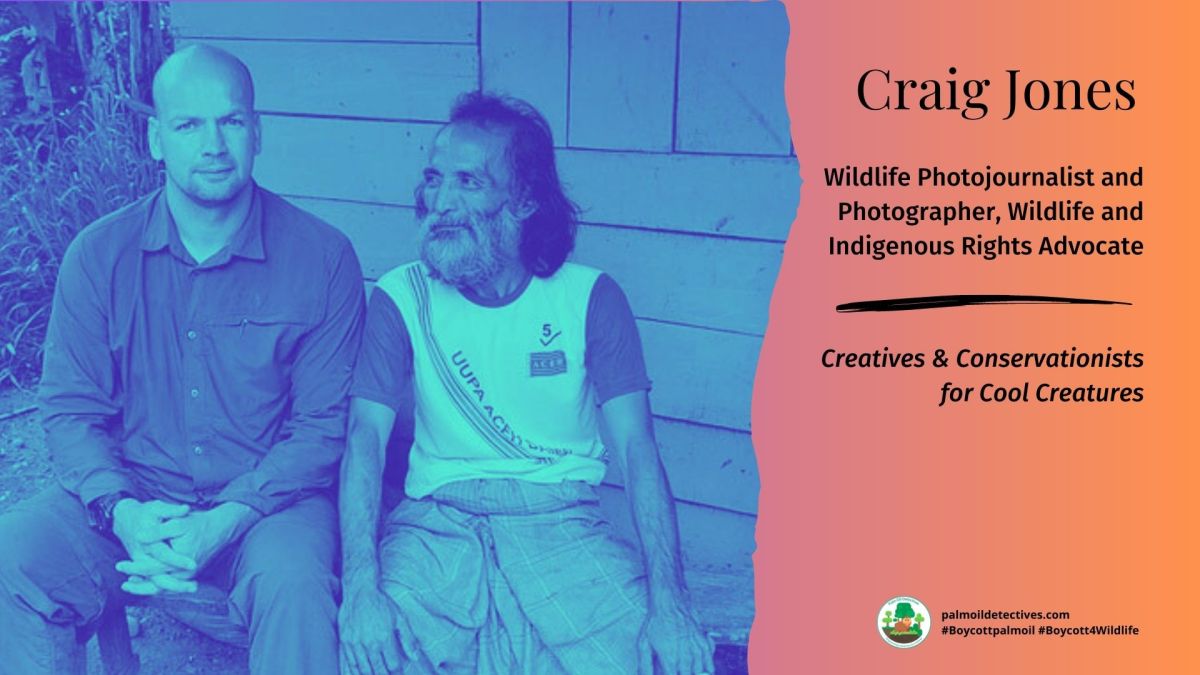
One thought on “Primatologist Cleve Hicks on Chimpanzee cultures, Palm Oil deforestation in His Own Words”